- Home
- Albert Camus
The Rebel: An Essay on Man in Revolt Page 8
The Rebel: An Essay on Man in Revolt Read online
Page 8
With Stirner, the concept of negation which inspires his rebellion irresistibly submerges every aspect of affirmation. It also sweeps away the substitutes for divinity with which the moral conscience is encumbered. "External eternity is swept away," he says, "but internal eternity has become a new heaven." Even revolution, revolution in particular, is repugnant to this rebel. To be a revolutionary, one must continue to believe in something, even where there is nothing in which to believe. "The [French] Revolution ended in reaction and that demonstrates what the
Revolution was in reality." To dedicate oneself to humanity is no more worth while than serving God. Moreover, fraternity is only "Communism in its Sunday best." During the week, the members of the fraternity become slaves. Therefore there is only one form of freedom for Stirner, "my power," and only one truth, "the magnificent egotism of the stars."
In this desert everything begins to flower again. "The terrifying significance of an unpremeditated cry of joy cannot be understood while the long night of faith and reason endures." This night is drawing to a close, and a dawn will break which is not the dawn of revolution but of insurrection. Insurrection is, in itself, an asceticism which rejects all forms of consolation. The insurgent will not be in agreement with other men except in so far as, and as long as, their egotism coincides with his. His real life is led in solitude where he will assuage, without restraint, his appetite for existing, which is his only reason for existence.
In this respect individualism reaches a climax. It is the negation of everything that denies the individual and the glorification of everything that exalts and ministers to the individual. What, according to Stirner, is good? "Everything of which I can make use." What am I, legitimately, authorized to do? "Everything of which I am capable." Once again, rebellion leads to the justification of crime. Stirner not only has attempted to justify crime (in this respect the terrorist forms of anarchy are directly descended from him), but is visibly intoxicated by the perspectives that he thus reveals. "To break with what is sacred, or rather to destroy the sacred, could become universal. It is not a new revolution that is approaching—but is not a powerful, proud, disrespectful, shameless, conscienceless crime swelling like a thundercloud on the horizon, and can you not see that the sky, heavy with foreboding, is growing dark and silent?" Here we can feel the somber joy of those who create an apocalypse in a garret. This bitter and imperious logic can no longer be held in check, except by an I which is determined to defeat every form of abstraction and which has itself become abstract and nameless through being isolated and cut off from its roots. There are no more crimes and no more imperfections, and therefore no more sinners. We are all perfect.
Since every I is, in itself, fundamentally criminal in its attitude toward the State and the people, we must recognize that to live is to transgress. Unless we accept death, we must be willing to kill in order to be unique. "You are not as noble as a criminal, you who do not desecrate anything." Moreover Stirner, still without the courage of his convictions, specifies: "Kill them, do not martyr them."
But to decree that murder is legitimate is to decree mobilization and war for all the Unique. Thus murder will coincide with a kind of collective suicide. Stirner, who either does not admit or does not see this, nevertheless does not recoil at the idea of any form of destruction. The spirit of rebellion finally discovers one of its bitterest satisfactions in chaos. "You [the German nation] will be struck down. Soon your sister nations will follow you; when all of them have gone your way, humanity will be buried, and on its tomb I, sole master of myself at last, I, heir to all the human race, will shout with laughter." And so, among the ruins of the world, the desolate laughter of the individual-king illustrates the last victory of the spirit of rebellion. But at this extremity nothing else is possible but death or resurrection. Stirner, and with him all the nihilist rebels, rush to the utmost limits, drunk with destruction. After which, when the desert has been disclosed, the next step is to learn how to live there. Nietzsche's exhaustive search then begins.
Nietzsche and Nihilism
"We deny God, we deny the responsibility of God, it is only thus that we will deliver the world." With Nietzsche, nihilism seems to become prophetic. But we can draw no conclusions from Nietzsche except the base and mediocre cruelty that he hated with all his strength, unless we give first place in his work—well ahead of the prophet—to the diagnostician. The provisional, methodical—in a word, strategic—character of his thought cannot be doubted for a moment. With him nihilism becomes conscious for the first time. Surgeons have this in common with prophets: they think and operate in terms of the future. Nietzsche never thought except in terms of an
apocalypse to come, not in order to extol it, for he guessed the sordid and calculating aspect that this apocalypse would finally assume, but in order to avoid it and to transform it into a renaissance. He recognized nihilism for what it was and examined it like a clinical fact.
He said of himself that he was the first complete nihilist of Europe. Not by choice, but by condition, and because he was too great to refuse the heritage of his time. He diagnosed in himself, and in others, the inability to believe and the disappearance of the primitive foundation of all faith—namely, the belief in life. The "can one live as a rebel?" became with him "can one live believing in nothing?" His reply is affirmative. Yes, if one creates a system out of absence of faith, if one accepts the final consequences of nihilism, and if, on emerging into the desert and putting one's confidence in what is going to come, one feels, with the same primitive instinct, both pain and joy.
Instead of methodical doubt, he practiced methodical negation, the determined destruction of everything that still hides nihilism from itself, of the idols that camouflage God's death. "To raise a new sanctuary, a sanctuary must be destroyed, that is the law." According to Nietzsche, he who wants to be a creator of good or of evil must first of all destroy all values. "Thus the supreme evil becomes part of the supreme good, but the supreme good is creative." He wrote, in his own manner, the Discours de la Methode of his period, without the freedom and exactitude of the seventeenth-century French he admired so much, but with the mad lucidity that characterizes the twentieth century, which, according to him, is the century of genius. We must return to the examination of this system of rebellion.1
Nietzsche's first step is to accept what he knows. Atheism for him goes without saying and is "constructive and radical." Nietzsche's supreme vocation, so he says, is to provoke a kind of crisis and a final decision about the problem of atheism. The world continues on its course at
1 We are obviously concerned here with Nietzsche's final philosophic position, between 1880 and his collapse. This chapter can be considered as a commentary on Der Wille zur Macht. (The Will to Power).
random and there is nothing final about it. Thus God is useless, since He wants nothing in particular. If He wanted something—and here we recognize the traditional formulation of the problem of evil—He would have to assume the responsibility for "a sum total of pain and inconsistency which would debase the entire value of being born." We know that Nietzsche was publicly envious of Stendahl's epigram: "The only excuse for God is that he does not exist." Deprived of the divine will, the world is equally deprived of unity and finality. That is why it is impossible to pass judgment on the world. Any attempt to apply a standard of values to the world leads finally to a slander on life. Judgments are based on what is, with reference to what should be—the kingdom of heaven, eternal concepts, or moral imperatives. But what should be does not exist; and this world cannot be judged in the name of nothing. "The advantages of our times: nothing is true, everything is permitted." These magnificent or ironic formulas which are echoed by thousands of others, at least suffice to demonstrate that Nietzsche accepts the entire burden of nihilism and rebellion. In his somewhat puerile reflections on "training and selection" he even formulated the extreme logic of nihilistic reasoning: "Problem: by what means could we obtain a strict form of complete and contagi
ous nihilism which would teach and practice, with complete scientific awareness, voluntary death?"
But Nietzsche enlists values in the cause of nihilism which, traditionally, have been considered as restraints on nihilism—principally morality. Moral conduct, as explained by Socrates, or as recommended by Christianity, is in itself a sign of decadence. It wants to substitute the mere shadow of a man for a man of flesh and blood. It condemns the universe of passion and emotion in the name of an entirely imaginary world of harmony. If nihilism is the inability to believe, then its most serious symptom is not found in atheism, but in the inability to believe in what is, to see what is happening, and to live life as it is offered. This infirmity is at the root of all idealism. Morality has no faith in the world. For Nietzsche, real morality cannot be separated from lucidity. He is severe on the "calumniators of the world" because he discerns in
the calumny a shameful taste for evasion. Traditional morality, for him, is only a special type of immorality. "It is virtue," he says, "which has need of justification." And again: "It is for moral reasons that good, one day, will cease to be done."
Nietzsche's philosophy, undoubtedly, revolves around the problem of rebellion. More precisely, it begins by being a rebellion. But we sense the change of position that Nietzsche makes. With him, rebellion begins with "God is dead," which is assumed as an established fact; then it turns against everything that aims at falsely replacing the vanished deity and reflects dishonor on a world which doubtless has no direction but which remains nevertheless the only proving-ground of the gods. Contrary to the opinion of certain of his Christian critics, Nietzsche did not form a project to kill God. He found Him dead in the soul of his contemporaries. He was the first to understand the immense importance of the event and to decide that this rebellion on the part of men could not lead to a renaissance unless it was controlled and directed. Any-other attitude toward it, whether regret or complacency, must lead to the apocalypse. Thus Nietzsche did not formulate a philosophy of rebellion, but constructed a philosophy on rebellion.
If he attacks Christianity in particular, it is only in so far as it represents morality. He always leaves intact the person of Jesus on the one hand, and on the other the cynical aspects of the Church. We know that, from the point of view of the connoisseur, he admired the Jesuits. "Basically," he writes, "only the God of morality is rejected." Christ, for Nietzsche as for Tolstoy, is not a rebel. The essence of His doctrine is summed up in total consent and in nonresistance to evil. Thou shalt not kill, even to prevent killing. The world must be accepted as it is, nothing must be added to its unhappiness, but you must consent to suffer personally from the evil it contains. The kingdom of heaven is within our immediate reach. It is only an inner inclination which allows us to make our actions coincide with these principles and which can give us immediate salvation. Not faith but deeds—that, according to Nietzsche, is Christ's message. From then on, the history of Christianity is nothing but a long betrayal of
this message. The New Testament is already corrupted, and from the time of Paul to the Councils, subservience to faith leads to the neglect of deeds.
What is the profoundly corrupt addition made by Christianity to the message of its Master? The idea of judgment, completely foreign to the teachings of Christ, and the correlative notions of punishment and reward. From that moment nature becomes history, and significant history expressed by the idea of human totality is born. From the Annunciation until the Last Judgment, humanity has no other task but to conform to the strictly moral ends of a narrative that has already been written. The only difference is that the characters, in the epilogue, separate themselves into the good and the bad. While Christ's sole judgment consists in saying that the sins of nature are unimportant, historical Christianity makes nature the source of sin. "What does Christ deny? Everything that at present bears the name Christian." Christianity believes that it is fighting against nihilism because it gives the world a sense of direction, while it is really nihilist itself in so far as, by imposing an imaginary meaning on life, it prevents the discovery of its real meaning: "Every Church is a stone rolled onto the tomb of the man-god; it tries to prevent the resurrection, by force." Nietzsche's paradoxical but significant conclusion is that God has been killed by Christianity, in that Christianity has secularized the sacred. Here we must understand historical Christianity and "its profound and contemptible duplicity."
The same process of reasoning leads to Nietzsche's attitude toward socialism and all forms of humanitarian-ism. Socialism is only a degenerate form of Christianity. In fact, it preserves a belief in the finality of history which betrays life and nature, which substitutes ideal ends for real ends, and contributes to enervating both the will and the imagination. Socialism is nihilistic, in the henceforth precise sense that Nietzsche confers on the word. A nihilist is not one who believes in nothing, but one who does not believe in what exists. In this sense, all forms of socialism are manifestations, degraded once again, of Christian decadence. For Christianity, reward and punishment implied the existence of history. But, by inescapable logic, all his-
tory ends by implying punishment and reward; and, from this day on, collectivist Messianism is born. Similarly, the equality of souls before God leads, now that God is dead, to equality pure and simple. There again, Nietzsche wages war against socialist doctrines in so far as they are moral doctrines. Nihilism, whether manifested in religion or in socialist preachings, is the logical conclusion of our so-called superior values. The free mind will destroy these values and denounce the illusions on which they are built, the bargaining that they imply, and the crime they commit in preventing the lucid intelligence from accomplishing its mission: to transform passive nihilism into active nihilism.
In this world rid of God and of moral idols, man is now alone and without a master. No one has been less inclined than Nietzsche (and in this way he distinguishes himself from the romantics) to let it be believed that such freedom would be easy. This complete liberation put him among the ranks of those of whom he himself said that they suffered a new form of anguish and a new form of happiness. But, at the beginning, it is only anguish that makes him cry out: "Alas, grant me madness. . . . Unless I am above the law, I am the most outcast of all outcasts." He who cannot maintain his position above the law must in fact find another law or take refuge in madness. From the moment that man believes neither in God nor in immortal life, he becomes "responsible for everything alive, for everything that, born of suffering, is condemned to suffer from life." It is he, and he alone, who must discover law and order. Then the time of exile begins, the endless search for justification, the aimless nostalgia, "the most painful, the most heartbreaking question, that of the heart which asks itself: where can I feel at home?"
Because his mind was free, Nietzsche knew that freedom of the mind is not a comfort, but an achievement to which one aspires and at long last obtains after an exhausting struggle. He knew that in wanting to consider oneself above the law, there is a great risk of finding oneself beneath the law. That is why he understood that only the mind found its real emancipation in the acceptance
of new obligations. The essence of his discovery consists in saying that if the eternal law is not freedom, the absence of law is still less so. If nothing is true, if the world is without order, then nothing is forbidden; to prohibit an action, there must, in fact, be a standard of values and an aim. But, at the same time, nothing is authorized; there must also be values and aims in order to choose another course of action. Absolute domination by the law does not represent liberty, but no more does absolute anarchy. The sum total of every possibility does not amount to liberty, but to attempt the impossible amounts to slavery. Chaos is also a form of servitude. Freedom exists only in a world where what is possible is defined at the same time as what is not possible. Without law there is no freedom. If fate is not guided by superior values, if chance is king, then there is nothing but the step in the dark and the appalling freedom of the blind. On the point of a
chieving the most complete liberation, Nietzsche therefore chooses the most complete subordination. "If we do not make of God's death a great renunciation and a perpetual victory over ourselves, we shall have to pay for that omission." In other words, with Nietzsche, rebellion ends in asceticism. A profounder logic replaces the "if nothing is true, everything is permitted" of Karamazov by "if nothing is true, nothing is permitted." To deny that one single thing is forbidden in this world amounts to renouncing everything that is permitted. At the point where it is no longer possible to say what is black and what is white, the light is extinguished and freedom becomes a voluntary prison.
It can be said that Nietzsche, with a kind of frightful joy, rushes toward the impasse into which he methodically drives his nihilism. His avowed aim is to render the situation untenable to his contemporaries. His only hope seems to be to arrive at the extremity of contradiction. Then if man does not wish to perish in the coils that strangle him, he will have to cut them at a single blow and create his own values. The death of God accomplishes nothing and can only be endured in terms of preparing a resurrection. "If we fail to find grandeur in God," says Nietzsche, "we find it nowhere; it must be denied or created." To deny it was the task of the world around him, which he saw rushing toward suicide. To create was the superhuman task

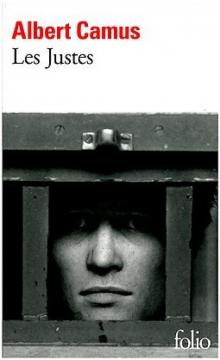 Les Justes
Les Justes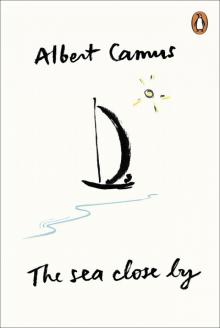 The Sea Close By
The Sea Close By The Stranger
The Stranger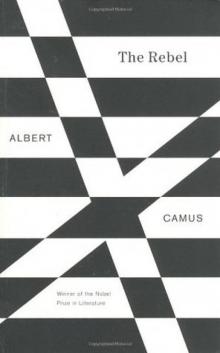 The Rebel: An Essay on Man in Revolt
The Rebel: An Essay on Man in Revolt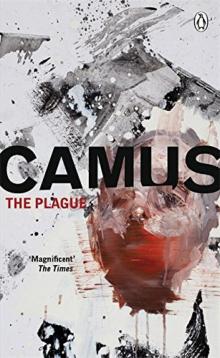 The plague
The plague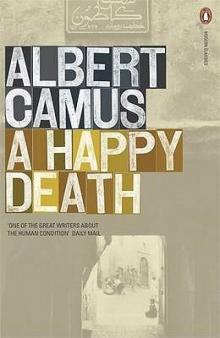 A Happy Death
A Happy Death The Myth of Sisyphus and Other Essays
The Myth of Sisyphus and Other Essays The Fall
The Fall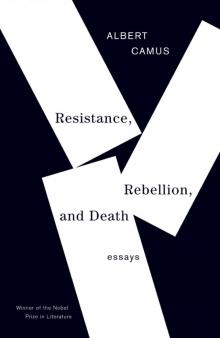 Resistance, Rebellion, and Death
Resistance, Rebellion, and Death The First Man
The First Man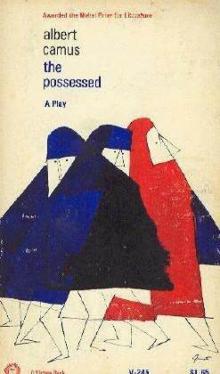 The Possessed
The Possessed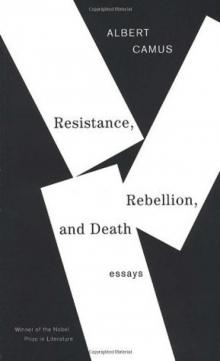 Resistance, Rebellion and Death: Essays
Resistance, Rebellion and Death: Essays